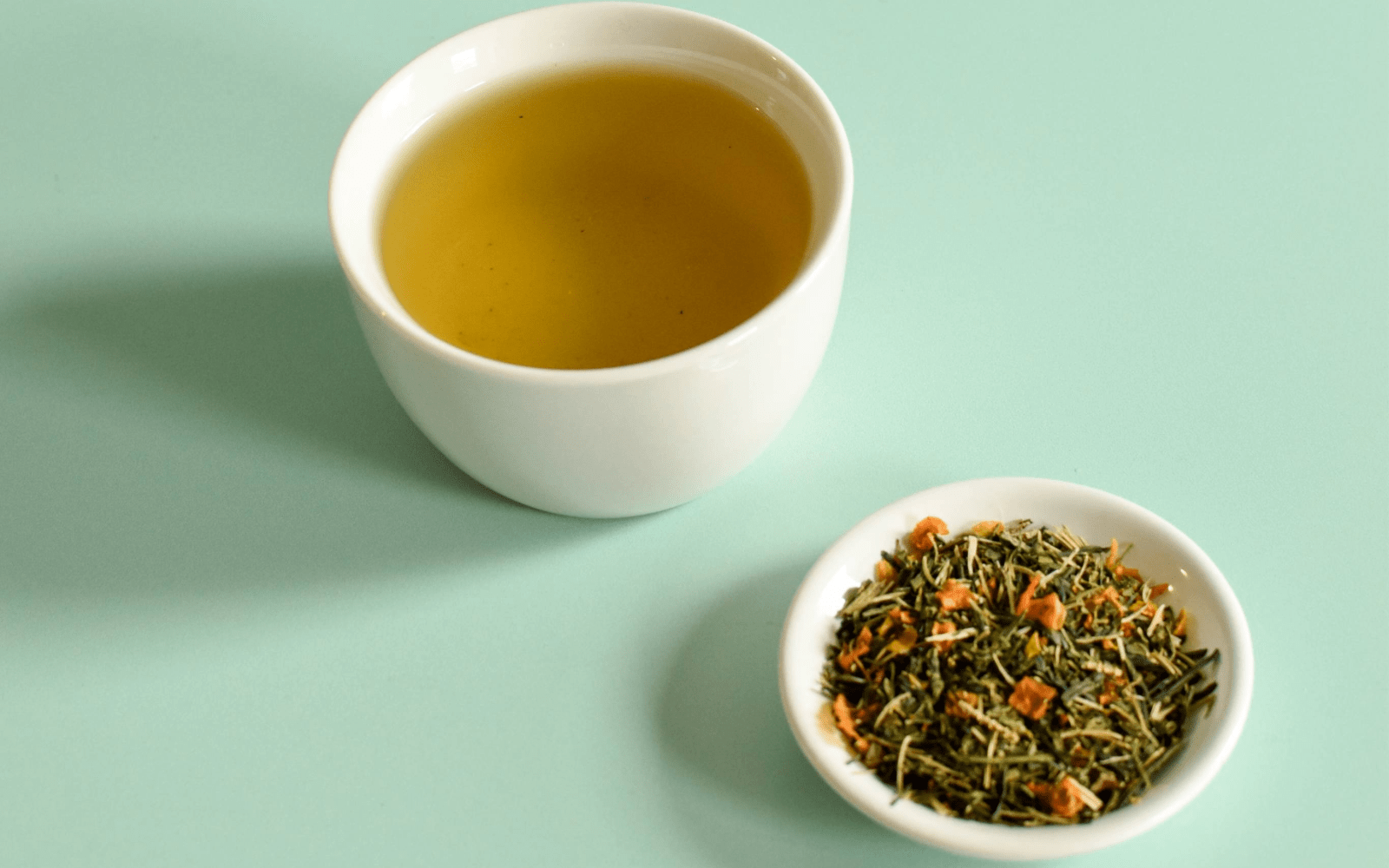
How to Choose the Best Morning Tea? The Guide to Finding Your Perfect Tea
The alarm rings, a new day begins. For many, this moment rhymes with a comforting hot beverage. Long king in North America, coffee is now gradually gaining popularity as tea. Consumed for millennia, tea remains the most consumed beverage in the world every day.
But then, how do you choose the best tea for the morning? Is it even good to drink tea every morning , and is it advisable to drink tea when you wake up? In this article, we'll answer all these questions.
Why drink tea instead of coffee in the morning?
Coffee: between energy and excess
A staple morning drink for millions of people, coffee is often associated with a welcome wake-up call.
Rich in caffeine, it generally contains 3 to 4 times more than tea, which explains its rapid stimulating effect on the nervous system.
But this power isn't without its drawbacks. Some people who are more sensitive to caffeine may experience side effects such as palpitations, tremors, or a feeling of restlessness.
Health Canada recommends not exceeding 300 to 400 mg of caffeine per day for a healthy adult , or about 2 to 3 cups of filter coffee — a threshold that can be quickly exceeded, especially with the oversized formats of commercial coffees.
Another point to consider: to fully appreciate its taste, many people generously add sugar, cream or artificial flavors, which turns this drink into a significant source of calories and added sugars.
Conversely, many teas and infusions are naturally sweet, aromatic and pleasant to drink without any additives , which often makes them a lighter and more balanced option for everyday use.
Caffeine in tea vs. caffeine in coffee: same molecule, two different actions
The quick "boost" of coffee
In coffee, the caffeine is said to be "free." This means that it is absorbed very quickly by your body, sometimes in less than 5 minutes. The result? The energizing effect is almost immediate, that famous "kick" that hits you all at once.
The downside? This effect often wears off quite quickly, within 2-3 hours, and can lead to an energy crash and a feeling of fatigue.
The gentle and prolonged energy of tea
Theine is the name often given to the caffeine found in tea. It's exactly the same molecule (an alkaloid from the xanthine family), but its effect on the body is nuanced by the other components of tea.
Interaction with Polyphenols: In tea, caffeine binds to polyphenols (like tannins). This natural bond slows its absorption. Instead of a rapid peak, you get a slower, more gradual effect that lasts over time (often 4 to 8 hours).
Synergy with L-Theanine: Tea contains a unique ingredient: L-theanine. This amino acid, virtually absent elsewhere in nature, is known for its relaxing effects. L-theanine works synergistically with caffeine: it modulates its stimulating effects, preventing the nervousness or anxiety sometimes associated with coffee.
Thus, tea provides a gentle, steady, and long-lasting stimulation, promoting concentration and alertness without the jitters. This is the famous feeling of "energized calm" or "serene alertness" unique to tea.
Why choose tea in the morning? The key benefits
Stable and crash-free energy
Ideal for sustained productivity. Caffeine is naturally present in tea. It can improve alertness and concentration for short periods. On average, a cup of tea contains about 50 mg of caffeine, about a third of what is found in a cup of coffee.
In other words, tea contains about 66% less caffeine than coffee, making it a milder option, ideal for steady energy without overstimulation.
Improved concentration
Caffeine/L-theanine synergy promotes mental clarity.
L-theanine and caffeine: a winning duo for attention. A 2008 study examined the effects of L-theanine, an amino acid naturally present in tea, on concentration. Researchers observed participants' brain activity during attention-demanding tasks using an electroencephalogram (EEG), a device that measures brain waves.
The results are interesting: L-theanine appears to improve the ability to concentrate, especially when combined with caffeine. Together, these two compounds appear to work synergistically to promote a state of calm, sustained alertness—without the jitters often associated with coffee.
Hydration
Contributes to your daily fluid intake. Our body is made up of 70% water , which shows how essential good hydration is for life. Every day, we naturally lose fluids, whether through breathing, sweating, or elimination. It is therefore crucial to drink regularly.
Contrary to popular belief, tea shouldn't be avoided for hydration. It's often thought that the caffeine it contains has a diuretic (and therefore dehydrating) effect, but this effect only appears at very high doses: around 250 to 300 mg in a single dose, or the equivalent of 5 to 6 cups of tea at once. With normal consumption, tea is completely hydrating. Of course, people with a caffeine-related health condition should speak to their doctor.
And since tea is 99.5% water … It could even be said that it’s even more beneficial than water alone, thanks to its naturally occurring antioxidants and active compounds!
Source of antioxidants
As recognized by health organizations such as Radio Canada , whether green or black, tea is naturally rich in polyphenols, including flavonoids and catechins. These antioxidant compounds play a key role in protecting cells against free radicals, unstable molecules that can contribute to premature aging and the onset of certain chronic diseases.
By incorporating tea into your daily routine, you benefit from a natural intake of antioxidants that support cardiovascular health, strengthen the immune system, and help maintain good overall health. Tea thus becomes much more than just a comforting beverage: it works gently, from the inside out, to nourish your well-being throughout the day.
Which tea should you choose to start the day off right?
Good news : the "best" morning tea is the one that matches your tastes and the energy you're looking for!
For lovers of full-bodied flavors (alternative to coffee): Black teas
With their rich, sometimes malty or toasted grain flavor, these teas have everything to appeal to coffee lovers. They offer an intense taste experience while providing a good dose of caffeine to kick-start the day.
Among the must-haves are classics like English Breakfast , Earl Grey , and Assam —safe bets, there are varieties for every taste. These teas are full of character and will appeal to coffee lovers.
For vibrant and serene clarity: Green teas and matcha
These teas are perfect for improving concentration and promoting a state of mental calm. Matcha , a fine green tea powder, is particularly powerful: it combines a high caffeine and L-theanine content to provide a lively energy boost, while maintaining a focused and serene mind.
Among the most popular teas are Japanese sencha , Chinese gunpowder , jasmine pearls and of course, matcha — ideal allies for optimal concentration throughout the day.
For sweetness and finesse: White teas and light Oolongs
Although often perceived as mild, some white teas, such as Bai Hao Yinzhen (or "Silver Needles"), can be surprisingly high in caffeine. These delicate teas offer not only a richness of flavor but also a subtle kick.
Oolongs , on the other hand, are semi-oxidized teas that offer an incredibly varied aromatic palette, combining sweetness and depth, with sometimes floral, fruity or slightly toasted notes. A true sensory journey in each cup.
When shouldn't you drink tea? And other important considerations.
Why not drink tea after a meal?
Some teas, especially black and green teas, contain tannins that can inhibit the absorption of non-heme (plant-derived) iron. If you are prone to iron deficiency, it is recommended to wait at least one hour after eating.
What tea should you avoid in the evening?
It's best to avoid teas because of their caffeine content, which can affect sleep quality, especially in sensitive individuals. If you're particularly reactive to caffeine, it's recommended not to consume them, even in the afternoon. However, you can opt for decaffeinated teas, which have had their caffeine removed through various processes. Decaffeinated teas can offer very good flavors, depending on the extraction method used.
As we saw earlier, caffeine has a half-life of approximately 8 hours: this means that eight hours after consuming it, your body has only eliminated half of it. It can remain active in the body until bedtime, which can disrupt falling asleep or deep sleep. If you usually drink coffee in the evening without it affecting your sleep, it is likely that you can also consume tea without any problem, which indicates that your body is not sensitive to caffeine.
So why drink tea before going to sleep?
Because there are naturally caffeine-free alternatives, such as herbal teas, which can actually help you relax and fall asleep. Opt for relaxing herbal teas , which contain chamomile or lavender .
Portrait of boreal teas : Between innovation and tradition
At Floèm, we wanted to infuse our teas with a Quebecois soul. Our tea leaves come from renowned terroirs, but we also incorporate wild ingredients harvested locally.
-
Nettle & Black Spruce Green Tea : Boreal awakening in your cup
Symphony of Flavors: A Journey Between Japan and the Quebec Forest
Let yourself be transported by this Japanese Sencha green tea, whose distinctive vegetal freshness evokes sea breezes and subtle notes of seaweed—a typical flavor signature, far removed from the profiles of Chinese green teas. Against this Japanese backdrop, we've combined the liveliness of wild nettle picked in Quebec. It unfolds its own marine melody, intensely leafy and herbaceous, a vibrant echo of our terroir.
Then, like a secret whispered by the great outdoors, black spruce, the emblematic conifer of our boreal forest, introduces a striking mineral freshness. Imagine the pure air of mornings in nature. To perfect this alliance, a delicate touch of sea buckthorn pulp illuminates the composition. Like an orange spark, a joyful ray of sunshine, the sea buckthorn berry offers a tangy and delicately fruity note, reminiscent of citrus fruits.
The result? An intensely refreshing Japanese Sencha green tea , enhanced by a unique boreal soul. A true invitation to a morning ritual that awakens the senses and celebrates local flavors.
Elixir of Benefits: Your Morning Ally for Vitality and Clarity
Wondering what the best green tea is to drink in the morning? This blend stands out as an exceptional candidate. At the heart of its virtues is green tea itself, a veritable treasure trove of antioxidants, recognized for their multiple benefits for the body.
The question often comes up: is it good to drink green tea in the morning on an empty stomach? For most people, enjoying this tea first thing in the morning is a great habit, allowing them to fully enjoy its benefits. However, it's always wise to listen to your body's signals, as some people may experience nausea, for example.
Nettle , a humble plant with great powers, amplifies this synergy by supporting your vitality and promoting good blood circulation. Black spruce , guardian of our ancestral forests, helps purify the respiratory tract, giving you a welcome feeling of clarity. Finally, the invigorating sea buckthorn pulp adds its precious supply of vitamin C, a natural boost for lasting energy.
Regarding the impact of green tea on the liver, moderate consumption is generally associated with protective effects, particularly due to its high antioxidant content. As with all good things, balance and variety in your diet remain essential.
-
English Breakfast Black Tea, Fir & Cranberry : The bold combination of classic and boreal
Awakening the senses: An intense and familiar taste palette
Imagine the familiar, comforting robustness of an authentic English Breakfast. We've infused this robust structure with the invigorating breath of the boreal forest with the resinous, delicately sweet notes of balsam fir . To perfect this balance, Quebec cranberry adds its tangy sparkle, a local flavor signature that many appreciate.
It's a bold revisitation, a colorful blend where the subtle sweetness of fir dances in harmony with the fruitiness of cranberry, creating a symphony of flavors that are both familiar and surprising.
The foundation of this blend is a trio of characterful black teas: two noble vintages from India, bringing depth and complexity, and a full-bodied tea from Rwanda, known for its liveliness. This combination provides an ideal backdrop to showcase our precious local ingredients.
Strength and Benefits: Your Invigorating Morning Ally
This tea is a dose of energy, perfectly suited to energize your mornings and offer you a significant boost. Black tea, by its very nature, is an excellent stimulant for the mind and body. Balsam fir, a treasure of our forests, is traditionally recognized for its beneficial properties on the respiratory tract, bringing a sensation of freshness and purity. Cranberry, meanwhile, is a valuable ally for its richness in antioxidants, contributing to your overall well-being.
The soul of the land and sustainable commitment: Our know-how
We dared to revisit the classic English Breakfast by incorporating iconic flavors dear to the hearts of Quebecers. The secret to its balance lies in the combination of balsam fir and cranberry. The latter comes directly from a partner farmer in Quebec, and is part of a circular economy approach that is dear to our hearts. While the fir comes from wild harvesting.
In fact, we recover dehydrated cranberry pulp, a by-product usually discarded following the production of cranberry juice, to give it a second life, delicious and virtuous. Thus preserving all its benefits and aromatic intensity while limiting waste.
-
Earl Grey Black Tea, Lemon & Wild Bergamot : The Nordic reinvention of a timeless classic
Aromatic palette: A unique dialogue between tradition and wild freshness
Earl Grey, by definition, is a blend of the robustness of black tea and the citrusy vibrancy of added bergamot. At Floèm, our passion for pure ingredients and authenticity led us to deconstruct and then reconstruct this great classic, banishing all artificial or "natural" added flavors. We wanted to capture the very essence of these flavors, directly from their plant sources, without additives.
Our quest began with organic lemons. Through a partnership with a local fresh-juice company, we give their unused lemon peels a second life. Carefully dehydrated and then crushed by us, they release an intense, zesty freshness. This circular economy gesture preserves both the authentic aromas and benefits of the fruit, while offering a natural alternative to the typical citrus note of bergamot. Its taste, while different, seduces with its lively freshness—a local touch we chose to highlight, as much for its evocative name as for its unique character.
For the soul of bergamot, we turned to monarda fistulosa , also poetically called wild bergamot. Picked in our terroir, it infuses the blend with a local and surprising boreal touch, offering a fresh herbaceous profile, which can evoke the finesse of oregano.
Finally, to anchor this creation in our landscapes, a subtle note of thuja (western cedar) has been added, bringing a discreet and elegant forest touch. This blend of two black teas from India, including one from the famous Darjeeling region, is renowned for its unique flavors characteristic of this region.
Invitation to Discovery: A unique signature, far from the beaten track
It's essential to savor this creation as a bold and unique reinterpretation. It doesn't seek to imitate classic Earl Grey, but rather to offer a new and original Quebec interpretation. Don't seek comparison; instead, let your curiosity guide you to this unique recipe. It's an invitation to rediscover a classic through the prism of our terroir and our commitment to authentic flavors.
Benefits and comfort: Morning energy enhanced by nature
This black tea is a wonderfully stimulating way to start the day, while also providing warm comfort. While traditional bergamot is prized for its soothing and digestive properties, our wild bergamot (monarda) shares this spirit of natural well-being. Organic lemon enriches each cup with a valuable source of vitamin C, while monarda is also traditionally used for its antiseptic properties. Thuja, meanwhile, is an ally for immunity, relieving colds and fevers.
The gentle alternative: morning herbal teas
For those who prefer a caffeine-free drink to start the day , or are sensitive to its effects, herbal teas are a great option. They provide a gentle way to hydrate and reap the benefits of boreal plants. For example, a balsam fir tea can purify the breath, while lemon balm promotes a gentle awakening and reduces morning stress. Explore our selection to find your morning ally.
Conclusion: Your personalized morning ritual
Choosing your morning tea is a personal matter. Is it acceptable to drink tea every morning? Yes, for most people, it's a healthy habit. The important thing is to find what works for you and create a ritual that makes you feel good. Floèm teas invite you to this discovery by delving into the Quebec terroir.
Morning Tea Frequently Asked Questions (FAQ)
Let's include here the questions you often ask yourself:
What is the best time to drink tea in the morning?
As soon as you wake up for an energizing effect. The British tradition of "Morning Tea" (or "Elevenses") is usually around 10:30-11 a.m., often as a break with a snack. But for a wake-up call, it's whenever you like.
Can you drink tea on an empty stomach? Is it good for your health?
Yes, for most people. It's a great way to hydrate and reap the benefits first thing in the morning. Tea can be a great morning drink on an empty stomach.
Why does drinking tea on an empty stomach sometimes make me sick?
Some sensitive individuals may experience gastric discomfort from tannins or caffeine on an empty stomach.
What if I am sensitive?
Eat a small snack beforehand (fruit, toast, yogurt). There is no absolute rule prohibiting tea on an empty stomach; it is a matter of individual tolerance.
Can tea replace breakfast?
No. A cup of tea, no matter how delicious, does not constitute a balanced meal. However, drinking tea with breakfast is excellent! It completes a nutritious meal.
Which tea has the most caffeine for morning tea?
Generally, black teas and matcha are among the most caffeinated. Some white teas made from young buds can also be. However, the content varies depending on the variety, harvest, and infusion.
Does morning tea help you lose weight?
Certain teas, particularly green tea, are being studied for their potential to support metabolism thanks to their catechins. Drinking unsweetened tea instead of high-calorie beverages may help with weight loss goals.
When to drink a “fat-burning” tea?
Drinking tea in the morning or throughout the day can be beneficial. But be careful: tea isn't a miracle solution. It's part of a healthy lifestyle that includes a balanced diet and physical activity.
How long should I wait between tea and fruit?
There's no hard and fast rule, but if you're sensitive, the acidity of the fruit combined with the tannins in the tea could cause discomfort. Listen to your body.
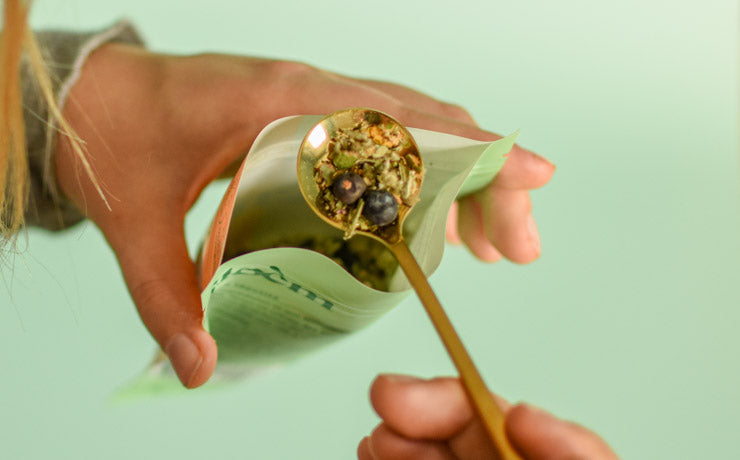
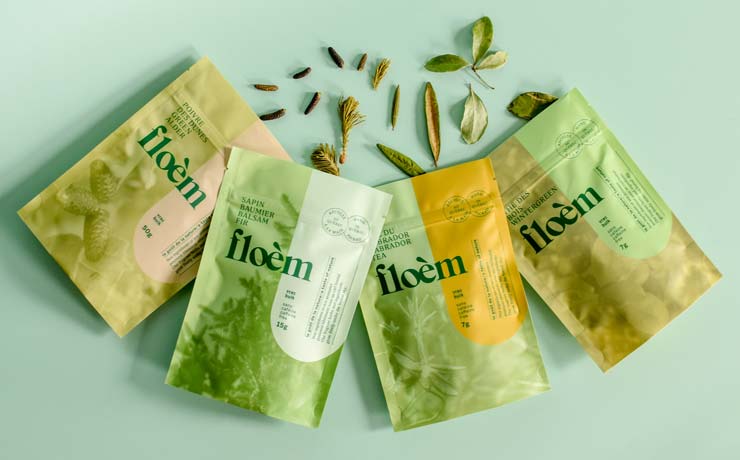
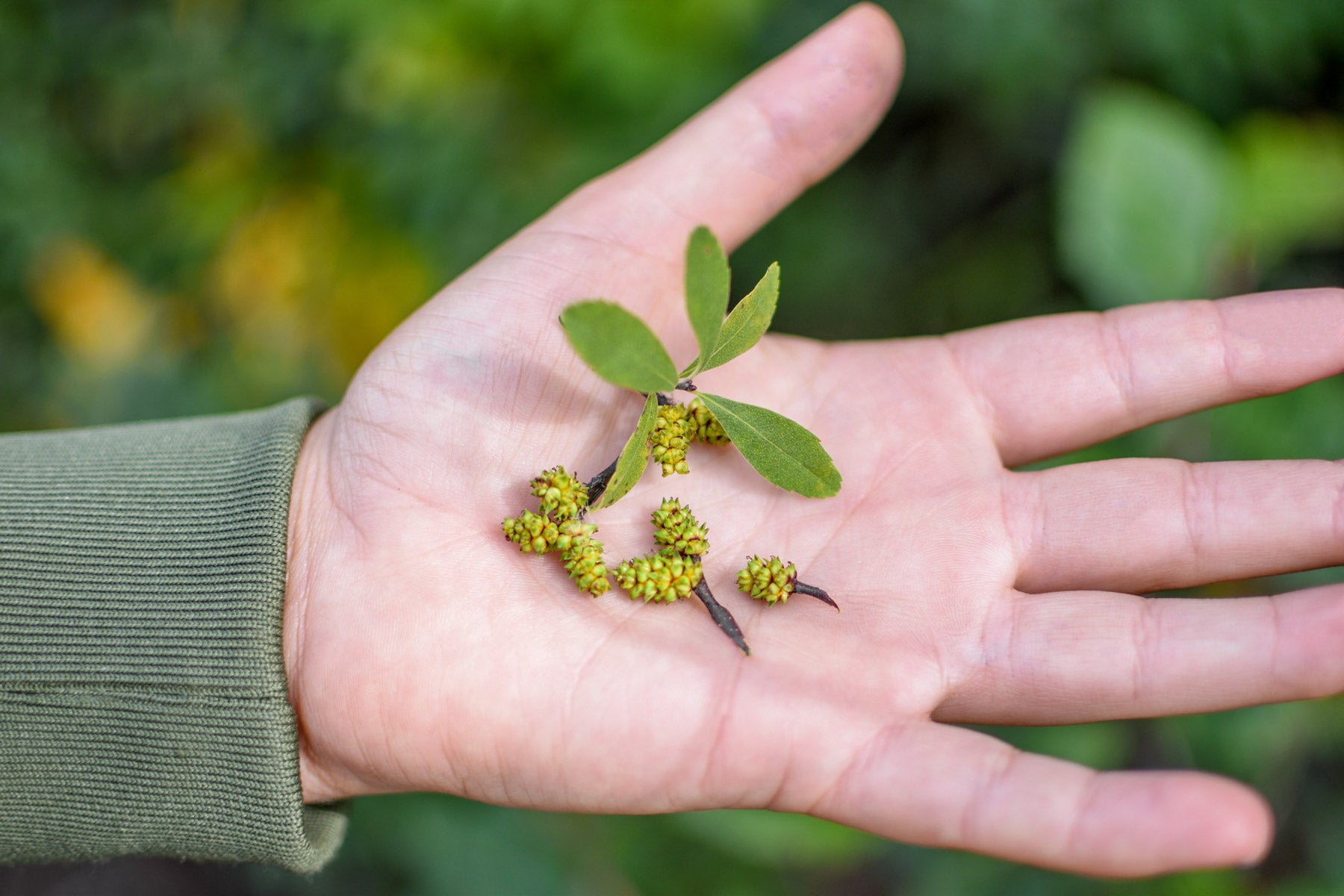








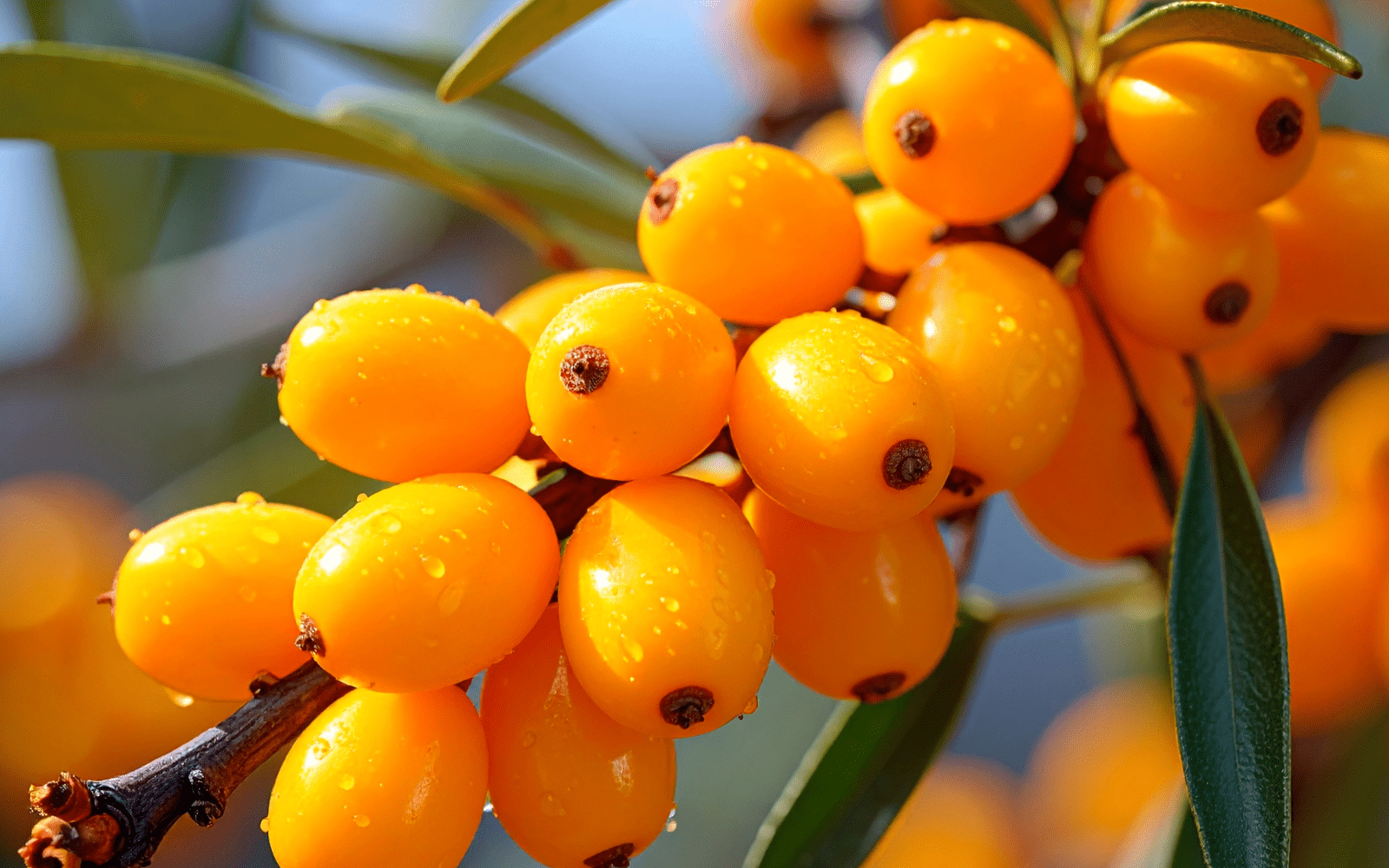

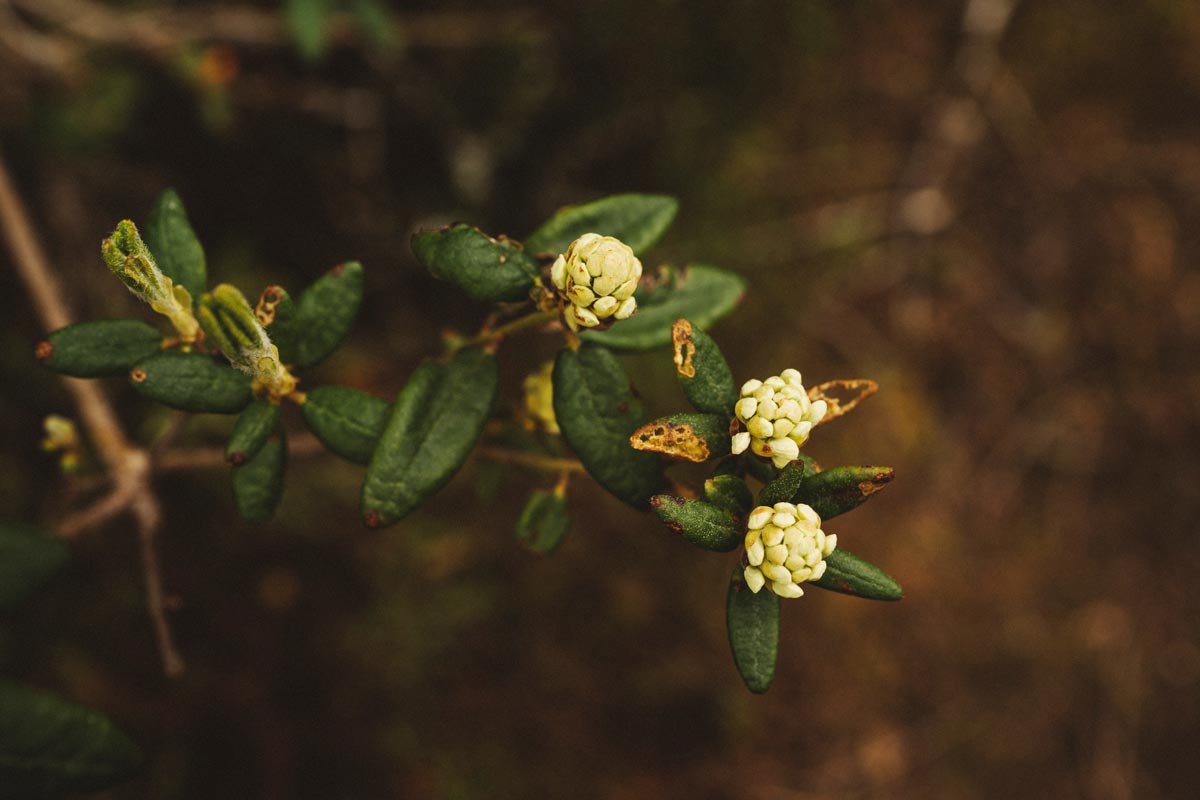
Leave a comment
This site is protected by hCaptcha and the hCaptcha Privacy Policy and Terms of Service apply.